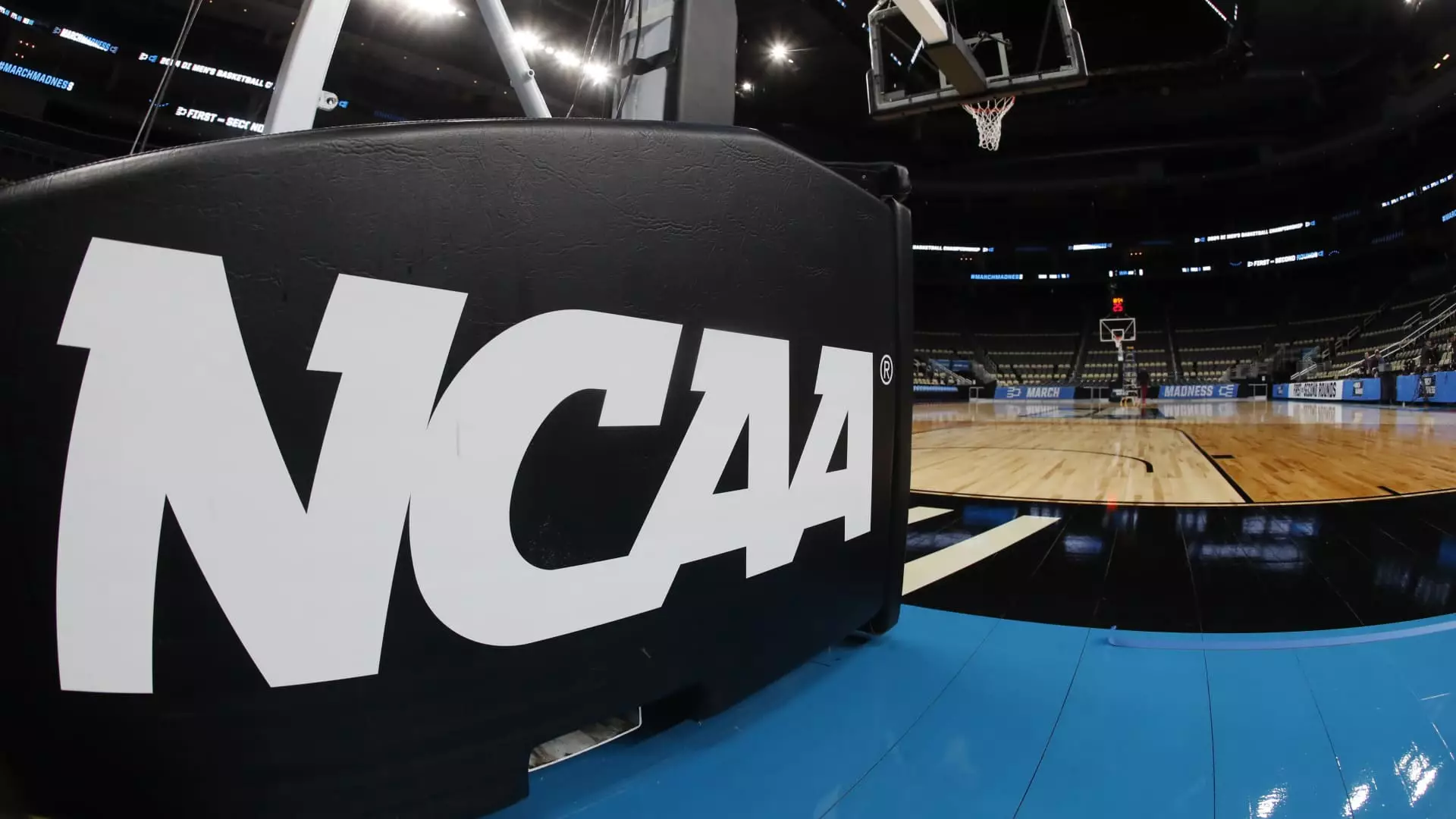In a significant policy shift, the National Collegiate Athletic Association (NCAA) has announced new regulations regarding transgender athletes, directly impacting trans women seeking to compete in women’s sports. This decision arose amidst a politically charged climate, specifically one day after former President Donald Trump enacted an executive order threatening to withdraw federal funding from educational institutions that permit trans women to compete. The controversial update to the NCAA’s policy emphasizes the contention surrounding inclusion and fairness within competitive sports, stirring a complex dialogue about gender identity, athletic performance, and the broader implications for the collegiate athletic landscape.
The NCAA’s revised directive is unequivocal: individuals assigned male at birth may participate in practice sessions with women’s teams and receive related benefits, such as medical care, but they are not permitted to compete in formal events. This decision indicates a strict segregation based on the sex assigned at birth. Additionally, while all students can participate on men’s teams, those who take testosterone must undergo a medical exemption process, reinforcing the idea that medication status plays a crucial role in determining competitive eligibility. This new directive effectively closes the door to trans women seeking equality in sports and reflects a broader societal struggle over rights, recognition, and fairness.
Furthermore, the NCAA’s policy does not stop at trans women. Women assigned female at birth who are on testosterone or undergoing hormone therapy for valid medical reasons, such as treating polycystic ovary syndrome, are excluded from women’s teams as well. This underscores a critical point: the policy not only marginalizes the trans community but also impacts cisgender women who might seek hormone treatment for health purposes, effectively placing their rights at risk.
NCAA President Charlie Baker emphasized the need for a consistent national standard in his comments, arguing that a fragmented approach dictated by state laws could create chaos. The organization’s change in stance reflects the influence of political pressures rather than scientific expertise or data. Many advocates for transgender rights, such as Chris Mosier, a prominent transgender triathlete, assert that the policy reflects a binary view of gender that fails to acknowledge the complexities of gender identities. This viewpoint frames the NCAA’s decision as one that fails to adapt to current scientific understandings of gender as a spectrum, rather than a rigid binary.
Organizations like GLAAD have voiced strong opposition to the NCAA’s new policy, describing it as a regressive step that lacks grounding in medical or human rights frameworks. GLAAD’s condemnation highlights the broader consequences of such policies: they not only harm individual athletes but also send a harmful message about the legitimacy of diverse gender identities.
This policy change could have profound implications for the collegiate sports system. With over 530,000 student-athletes across the nation, the NCAA’s decisions hold weight far beyond the immediate context of competition. As educational institutions grapple with the fallout from this policy, they may be forced to confront difficult questions about inclusivity, fairness, and the integrity of competitive sports.
The implications extend into the realm of psychology, where the exclusion of trans women could exacerbate existing mental health challenges faced by transgender individuals. Participation in sports is often linked to improved mental well-being and social connectedness, making this policy not only a question of fairness in competition but also one of health equity.
The NCAA’s latest policy on transgender athletes represents a contentious intersection of sports, politics, and social equity. As the conversation surrounding gender and athleticism evolves, the need for policies that are informed by scientific understanding and human rights becomes increasingly urgent. For many, the challenge lies in reconciling the desire for competitive fairness with the demand for inclusive spaces where all athletes’ identities are respected and acknowledged. Future conversations must strive to balance these interests while advocating for the rights and well-being of all student-athletes, irrespective of their gender identity.


Leave a Reply